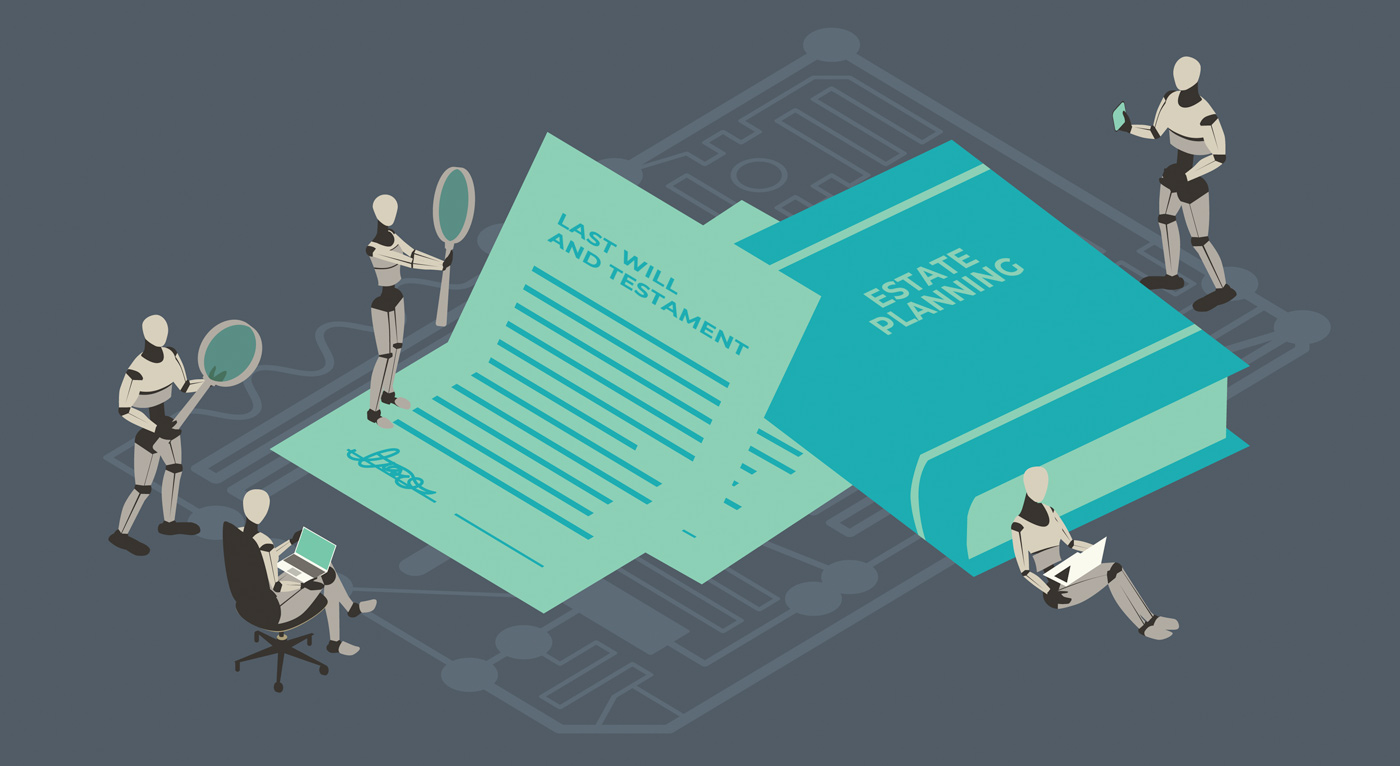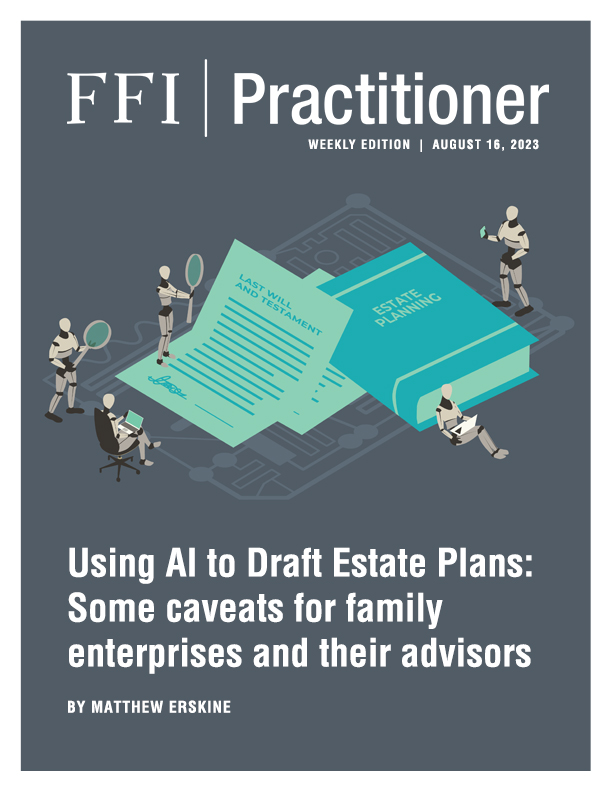
To some degree, estate planning for family enterprise clients may be about control. It addresses how assets and possessions will be distributed after an owner’s death, or how to manage the founder’s care and assets if she becomes incapacitated and unable to make financial or medical decisions.
Estate planning is complex and time-consuming for a reason—its goal is to anticipate future events that could jeopardize or remove an individual’s control over major aspects of his or her life, which often makes it a very personal and emotional subject.
Some estate planning clients may be tempted to use AI tools to simplify the drafting of their estate plans, especially as their use in different fields becomes more prevalent. However, there are several reasons why clients should proceed with caution.
-
Highly personal process
Estate planning is a highly personal process, requiring careful and thoughtful consideration of each person’s unique circumstances and goals. While AI tools generate documents quickly and efficiently, they are by definition impersonal and generic. AI can detect patterns based on what has happened in the past, but it is not designed to anticipate future events. Personalized attention and expertise typically require an estate planning attorney.
-
Highly complex process
Estate planning involves complex tax, legal, and financial considerations that require specialized knowledge and expertise. While AI tools provide basic information and guidance, they cannot replace the experience and expertise of a practicing attorney.
-
Sensitive and confidential information
Estate planning inherently involves sensitive and confidential information that should be kept private and secure. While AI tools claim to be secure, there is always a risk of data breaches and cyber-attacks that could compromise clients’ personal information.
-
Unique circumstances and motivations
Estate planning involves complex and unique circumstances and individual motivations that require careful analysis and interpretation. While AI tools are able to analyze data and provide recommendations, they do not provide the same level of critical thinking and analysis that an attorney can.
-
Ethical considerations
Estate planning often involves ethical and moral considerations that require careful consideration and reflection. While AI tools provide objective data and analysis, they cannot provide the same level of moral and ethical guidance that an estate planning attorney can.
Sidebar
By: Matthew Erskine
Handling the Dynamics in a Family Enterprise
While the above reasons apply to any estate plan, they are particularly applicable when planning ownership succession for a family enterprise. Planning for the succession of ownership as part of the overall estate planning of the family enterprise is often more complicated due to differing communication practices between generations, lack of preparedness among the next-generation inheritors, personal conflicts, and misunderstandings. Added to these complications is the potential involvement of non-family management, continuity of the ongoing operations of the enterprise, and the impact of economic and political forces outside of the enterprise.
There are five common family dynamics in family-owned businesses an AI is not able to handle effectively.
-
The disparity between family and business goals
Family enterprise owners often have a considerable portion of their assets tied up in the business, and conflict may arise when there is a significant disparity between family and business goals. Estate planning requires careful consideration of both family and business goals, and AI does not align or balance these goals and/or formulate a strategy for reaching them.
-
The difficulty in letting go of the family business
The transition phase of a family-owned business can be difficult, as many entrepreneurs in the first generation experience emotional challenges in letting go of the family business. Estate planning requires careful consideration of these emotional aspects of succession planning, and AI is not equipped to address these factors.
-
Complex family relationships
Family enterprises are often subject to complex family relationships and dynamics, formed over multiple generations, that can impact an owner’s estate planning. For example, sibling rivalries can create challenges when it comes to succession planning, especially when a parent decides to pass ownership unequally among next gen siblings. AI is not able to fully understand the nuances of these relationships and make appropriate recommendations.
-
Unique family goals and values
Family enterprises are often driven by specific goals and values that are unique to each family. These goals and values may include preserving the legacy of the business, maintaining family control, or ensuring the well-being of future generations. AI is not designed to fully understand and incorporate these goals and values into the estate planning process.
-
The lack of business planning and company policies
If a family-owned business lacks a business plan and/or established company policies, it could be left open to face employment-practices liability claims and director and officer liability. Without a deep understanding of these factors, AI does not provide the level of risk management that is necessary for effective estate planning.
AI tools have already proven themselves to be useful for certain tasks. However, estate planning is not yet one of them. Estate planning is a highly personal and emotional process that requires specialized knowledge, expertise, and attention. By working with a human estate planning attorney, family enterprise owners can ensure that their wishes for the distribution of their complex assets are carried out effectively and that their loved ones are taken care of in the way that they intended.






